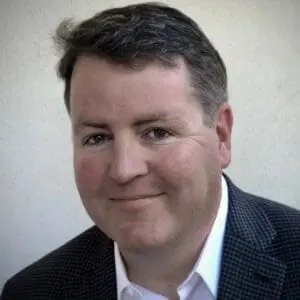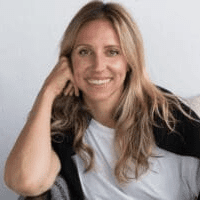These days, deciding on which approaches you want to use with clients can feel a little like selecting from an all-you-can-eat buffet. There’s more to choose from, clinically speaking, than ever before: brainspotting, havening, tapping, emotional freedom technique, polyvagal-informed techniques, and many other therapies that focus on working directly with the body to release emotional blocks and help clients shift into relaxed, receptive states. Though rarely stated openly, the implication behind these newer approaches is often what matters most for healing is present-moment experiences in the body. In fact, there’ve long been signs that as a field, we’re trending away from talk therapy as the centerpiece of our work—and in particular, away from techniques and approaches that examine the impact of lingering patterns that developed early in life with caregivers.
Which has led me to wonder: Is our field moving beyond looking back?
According to Vienna Pharaon, a marriage and family therapist and author of the bestselling book The Origins of You: How Breaking Family Patterns Can Liberate the Way We Live and Love, the only way we can truly help our clients move forward is by looking back—without, of course, getting stuck there! In her writing, social media posts, and popular podcast This Keeps Happening, Pharaon herself embodies the apparent contradictions of looking back to move forward. With nearly a million Instagram followers, she’s unmistakably hitting a nerve with millennials. She’s youthful, hip, and outspoken—not the kind of person many of us imagine when we think of a talk therapist asking about our relationship with our mother—yet she stands behind some of the basic, foundational principles that have shaped our field, especially when it comes to looking at what worked and what didn’t in our families of origin. Recently, she and I connected to discuss the life-changing power of focusing therapy on our childhoods.
Ryan Howes: How did you become interested in family-of-origin work?
Vienna Pharaon: When I started working as a marriage and family therapist, I came in with a strong narrative that my past hadn’t affected me at all, even though my parents had gone through a nine-year divorce process, the longest in the state of New Jersey at the time. I was convinced the divorce hadn’t affected me, but now I know it did. I believe all therapists, whether they know it or not, get into this line of work to resolve what’s unresolved in their lives.
Our family of origin is our first education when it comes to relationships, love, intimacy, communication, and conflict. Even though I was always known as a great listener, and people often came to me for support and advice, I didn’t have a clue what it meant to create and maintain a successful relationship because I hadn’t seen that growing up. So, while I went to grad school to help other people, a part of me was thinking, You get one chance at love, and you need to educate yourself about it.
In the end, leading a client through family-of-origin work necessitates understanding where unresolved things need tending to in your own life. I didn’t know it at the time, but I had a lot of work to do.
RH: Getting people to focus on painful things from their past isn’t an easy task. How do you approach that?
Pharaon: Healing begins with acknowledging that the most painful patterns in our adult lives are connected to the past. I see this pain as something that’s trying to grab our attention. The pain is saying, “Could you turn around and face me? We don’t have to hang out forever, but can we spend some time together so that I can be released, and I can release you?”
At this point in my career, the clients who find me know what my work is about, so I don’t have to convince them to look at the past; however, a lot of them say things like, “I want to operate differently, but every time I have the opportunity, I don’t.” Often, because clients are jumping over pain from the past, they’re unable to make the changes they want to make in the present. Looking at the past can help them make different choices.
RH: How much does grief work factor into family-of-origin work?
Pharaon: Grieving losses and having someone bear witness to that grief is so powerful in moving us forward. It’s hard to heal without witnessing. And, I often say, “When you’re stuck, grieve more.” Part of why therapy can be so effective is because a therapist bears witness to our story. Clients don’t have to go back into their pain, but they need to acknowledge it.
Viktor Frankl says, “Between stimulus and response, there is a pause.” The pause extends itself when we acknowledge and name our wounds, when we spend time witnessing what was taken or lost. In this extended pause, we can move from survival to choice, and that’s how we change patterns. Having choices is deeply healing because we often had no choice in our pain or a trauma we experienced. It just happened; we didn’t have a say in it.
The choice we have is in how we relate to things that don’t change. Clients often say, “If I write my parent or sibling a letter, if I yell at them, if I explain my perspective calmly—basically, if I try every which way to make them understand what I’m saying—maybe I can get them to change.” I help clients shift away from trying to change other people or force other people to acknowledge something they won’t, because those things create a lot of suffering. Instead, I help them ask: “How do I relate to you when I accept that the change I want isn’t going to happen?” Grief will come up around this question, but if we can move through the grief, we have a lot more choice in our relationships—in how we continue them, or not.
Another big shift occurs when we can help clients move from asking “Why won’t they change?” to seeing that people can’t change. What a client wants a parent to address might shatter something so significant within that parent that they just can’t do it. How do we accept this? Painfully.
So the work becomes getting the care, love, and nurturing we need from other places while holding space for sadness and grief. It becomes determining whether we can still have some type of relationship with family members as we accept and understand their limitations. That’s for each person to sit with and answer for themselves. Obviously, if there’s harm in those relationships, a person may have to make tough choices about whether to remain in regular contact. But if we can understand and accept someone’s limitations, we can choose a new way of relating with them.
RH: Are there situations in therapy when exploring a client’s family of origin isn’t beneficial?
Pharaon: I don’t think so, but timing is important. A therapist needs to consider when a client is prepared or ready to go to a certain place—which is part of the art of doing therapy. I’m not going to start a first session saying, “Let’s talk about your father and mother,” but I can’t imagine a situation where the way a person grew up is best left ignored over the course of treatment. Clients sometimes worry about opening Pandora’s box, or they don’t think it’s fair to discuss a family member who’s deceased and can’t respond. But we’re not saying, “Let’s see if we can find the worst thing you’ve never been able to uncover before.” We’re saying, “Let’s acknowledge your past so we can understand your historical landscape.”
RH: Many therapists today are trained in approaches that don’t focus on exploring family-of-origin experiences. What would you like them to know about this work?
Pharaon: Therapists need to find what fits them best, but I don’t know how we can avoid addressing what a person witnessed and experienced growing up. That part feels so important to me. Family-of-origin work opens up the entire landscape of a person’s life and relationships. When you understand where someone comes from, you ultimately understand them in their present day better. Early family dynamics shape us and change the entire trajectory of our lives. Once we get this, who we are today makes a heck of a lot more sense. Most of us understand intuitively that if there’s a lot of reactivity in a therapy session, there’s something historical playing out. But are we willing to explore that intentionally? Family-of-origin work gives us the foundation that the people we’re seeing were built on. 
Ryan Howes
Ryan Howes, Ph.D., ABPP is a Pasadena, California-based psychologist, musician, and author of the “Mental Health Journal for Men.” Learn more at ryanhowes.net.














